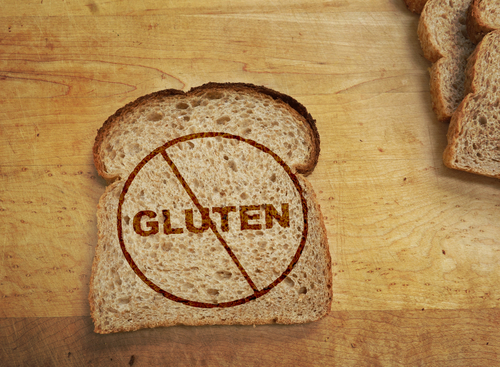
Gluten. Everyone seems to be talking about it but is it really that bad for our health? The answer to that question is not easy because it’s very subjective and it all depends on whether or not your body is able to tolerate foods that contain it. While the reputation that gluten has been stuck with in the past few years may be undeservedly bad, one thing is for certain; that gluten intolerance can in fact be miserable to deal with.

Before we launch into all of the warning signs that indicate that you may be sensitive to gluten, you need to know some basic information, like what it is. Gluten happens to be a type of protein that’s commonly found in grains like wheat, oats, barley, and rye. In terms of baking, it’s part of what allows dough to rise and so it gives foods like breads and many desserts a chewy, fuller, and more airy type of texture.

The problem with gluten arises when a person has celiac disease and their body is, or over time becomes, intolerant to it. For the majority of people who are intolerant this means their immune systems react very badly to it and become inflamed when foods with gluten are eaten. This chronic type of inflammation can lead to the lining in the small intestine being damaged and in many cases the body becomes unable to adequately absorb nutrients. In turn a number of other medical complications arise, such as anemia and osteoarthritis. That is why it’s so important that gluten intolerant people do their absolute best to avoid any and all gluten!

If you think that you may be intolerant to gluten, your body will tell you. If you are experiencing the most common physical symptoms and signs that are associated with it and listed below, then you need to consult a doctor about the issue and to rule out other possible causes. With that in mind, if you have experienced any of the following it may be symptomatic of gluten intolerance and you should talk to your physician:

1. Chronic Fatigue
If you always feel tired and drained of energy, no matter how much sleep and rest you get, it could be diet related. When gluten is constantly inflaming your body, your immune system acts as if it is under attack and wastes a ton of energy trying to defend you. This is what makes gluten intolerant people feel so depleted and exhausted and over time it gets worse and worse. Eventually chronic fatigue sets in and the stress of it all just compounds it even more.

2. Fibromyalgia
If you have been diagnosed with fibromyalgia, which among other things is marked by weakness, sleep problems, muscle aches, and bodily pain, an intolerance to gluten could very well quite possibly be an underlying part of the associated chronic fatigue and other symptoms you’re feeling.

3. Stomach Pain
Symptoms such as bloating, diarrhea, gas, and constipation are all major and clear signs of gluten intolerance, especially if they are chronic. Persistent stomach pain and any of the aforementioned signs that last for days at a time need to be addressed by a doctor and should be taken very seriously. Foods that contain gluten can damage and inflame the small intestine in those who are intolerant and this may end up leading to a host of additional stomach/digestive related problems.

4. Chicken Skin
Chicken skin is when your skin resembles that of a skinned chicken and it’s marked by tiny, hard, white or pinkish-red bumps that look kind of like a rash. It’s actually a very common skin condition and the bumps often appear randomly, but are found most often around the elbows and on the back side of arms.

In medical terms chicken skin is called keratosis pilaris. It’s named after the keratinization of hair follicles on the skin which occurs when your body produces excess amounts of keratin, a skin protein. All of the extra keratin starts to clump together around hair follicles which causes bumps to form. Many cases of chicken skin are also attributed to fatty acid and vitamin A deficiencies which are brought on by a gluten inflamed gut causing malabsorption.

5. Itchy Skin
While the chicken skin mentioned previously is normally not itchy at all, many people with gluten sensitivity do have skin conditions that are extremely itchy, like psoriasis or eczema. Besides being very uncomfortable and itchy, they are also painful and require medication to properly deal with it. Human skin is easily influenced and affected by internal bodily conditions, so when your insides are inflamed and in turmoil it can lead to dry, itchy skin outbreaks.

6. Constant Headaches
If you experience migraines and chronic headaches, especially within sixty minutes of eating, it could very well be linked to diet and a gluten intolerance. People who also tend to have migraine headaches accompanied by pain, blurred vision, and dizziness show an increased sensitivity to gluten.

7. Dizziness
Feeling disoriented, lightheaded, and off balance are common symptoms people with gluten intolerance report. Most of the time these irregular and abnormal dizzy feelings show up soon after eating foods with gluten in them. If you keep track of what you eat and try out a strict gluten-free diet for at least a couple of weeks, you can gauge your bodies reaction and see if the dizzy feelings disappear and go away.

Note: Always go see your doctor if you believe you are experiencing any health issues.
Please Share This Information With Family and Friends










